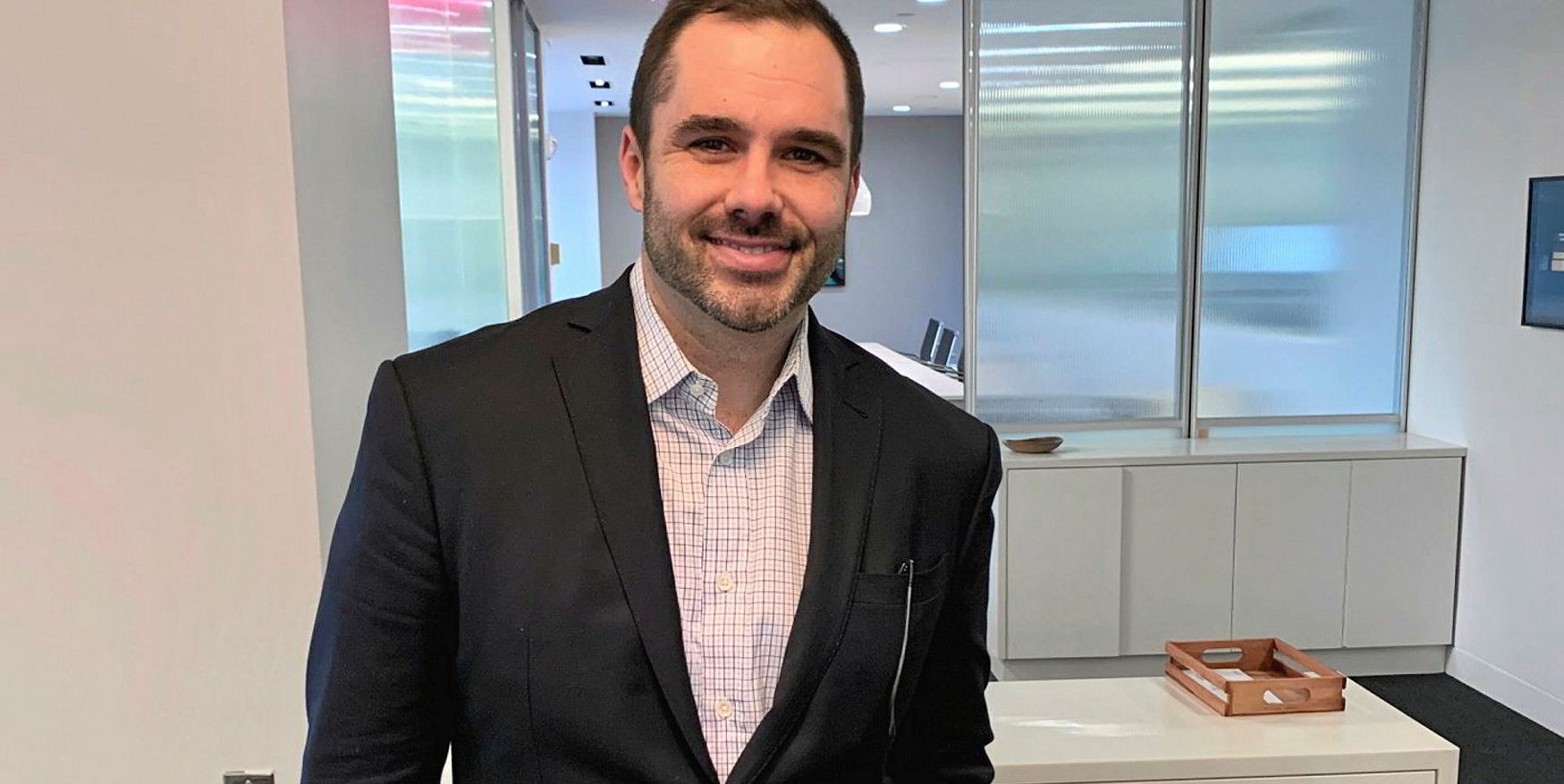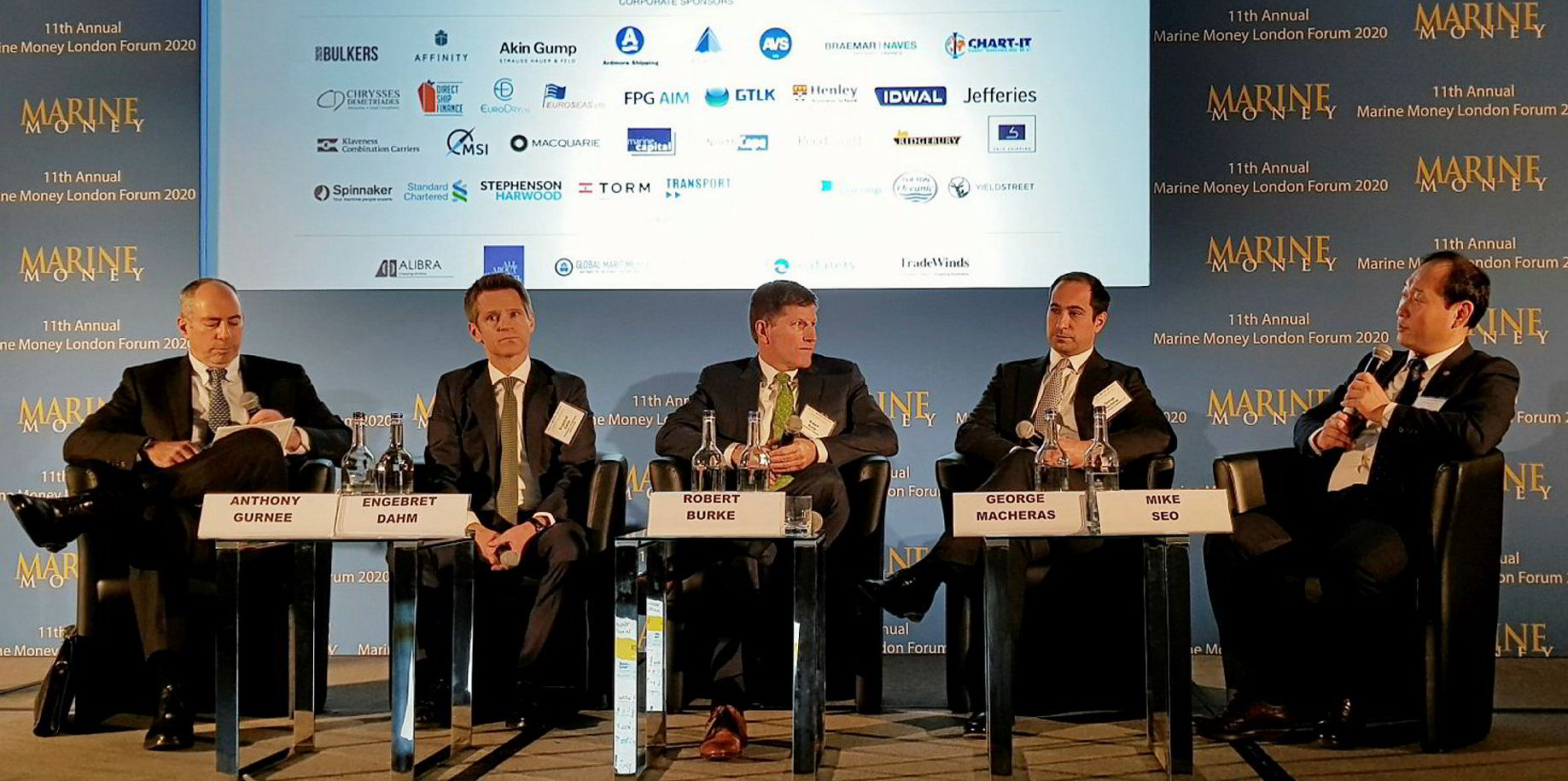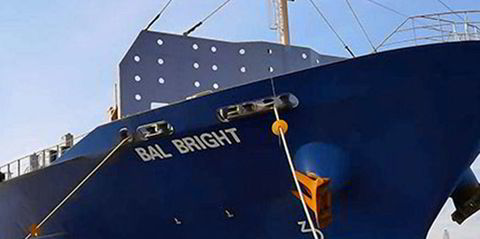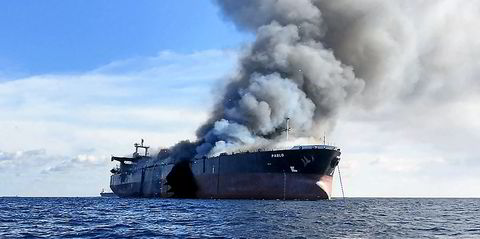Shipping has a chance to lead industries and regulatory regimes for once rather than being a marginalised sector with little profile or political clout, a veteran banker told a New York maritime conference today.
But there is a hurdle to clear, and that is to embrace the initiatives embodied in banking’s Poseidon Principles and lead others toward a greener environment.
That was the battle cry from Michael Parker as he addressed the annual gathering of the Hellenic American/Norwegian American chambers of commerce in New York.
Parker is chairman of Citigroup’s logistics and shipping unit and a key architect of those principles, which align availability of financing with efforts by owners to reduce carbon emissions in their fleets.
“One of the weaknesses of this industry has been its political weakness,” Parker told a lunchtime audience as the event’s keynote speaker.
“It doesn’t have enough jobs. Shipping has lacked political power with anyone. Now is the opportunity through initiatives like the Poseidon Principles to exercise more influence”
Parker said after 42 years as a banker and 36 in maritime, “It’s the first time that shipping is the industry that can help set the agenda.”
The conference presented quite a power play for the Poseidon Principles, which have been signed by 17 of the world’s most important ship lenders.
Beyond group chairman Parker’s luncheon address, the Principles’ vice chairman, Paul Taylor of Societe Generale, took part in a morning financial panel.
Both Taylor and Parker made the point that shipping is the only industrial sector to have such a regime in place. Both both men said that’s not likely to last long as both other industries and regulators look to shipping’s example.
“Regulators are taking a keen interest, and other sectors are beginning to take a keen interest,” Parker said.
“The aviation industry is worried about the fact that it has to talk about offsets [for carbon emissions],” Parker said
While flying is a voluntary activity, “shipping is not — it’s about trade,” he added.
“At the moment, the shipping sector is on its own,” Taylor agreed in answer to an audience question following his panel appearance.
“The industry should be proud that it’s the first one,” adding that shipping is fortunate to have “its own regulator” in the International Maritime Organisation (IMO).
Parker drew a line between two types of shipowners: one who takes the narrow view that “it’s just about the ship” and may oppose reform, and “the more enlightened” owners “who realise that a ship is just a piece of the supply chain.”
It is not just bankers and regulators who may cause worry for the first type of owner, Parker reasoned.
He related that a group of charterers under the auspices of the Global Maritime Forum were working up their own version of the Poseidon Principles and could make an announcement by the fall.
“I promise you that could have a much bigger impact than what the banks are doing now,” Parker said.
Owners will need to come to grips with the fact that reforms will make shipping different in the future, but that is not a bad thing, Parker asserted.
“This is the greatest opportunity to stop building ships we don’t need,” while yielding a chance “to make decent money,” he said.
“Embrace this, it will happen. It will make us the industry that everyone is looking up to.”








